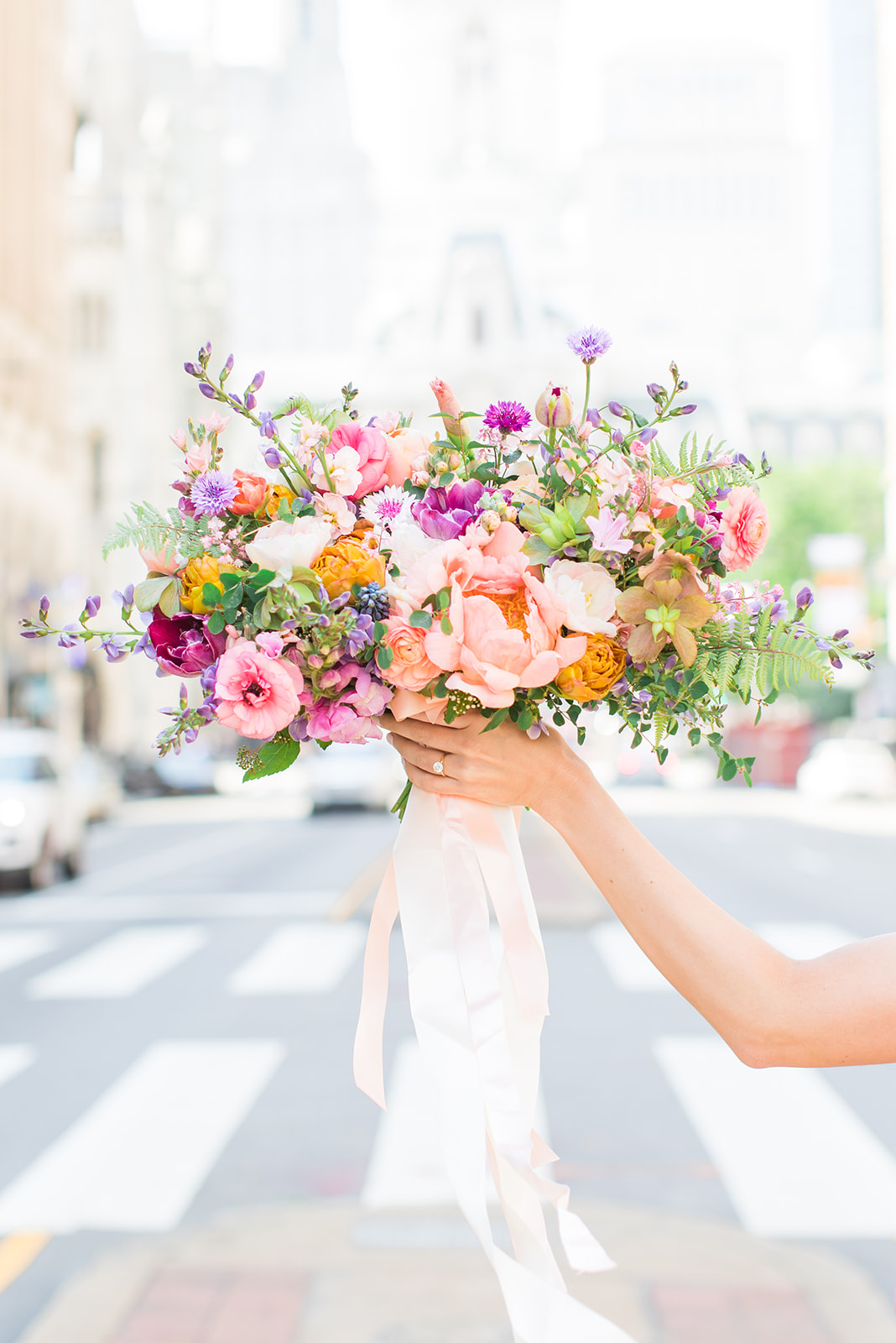We recently connected with Jennie Love and have shared our conversation below.
Jennie, looking forward to hearing all of your stories today. Let’s start with a story that highlights an important way in which your brand diverges from the industry standard.
The U.S. floral industry, while beautiful, is not sustainable. Eighty percent of the cut flowers sold in the U.S. are imported from other countries and are often coated in chemicals in order to cross the border. Much of the production abroad happens in countries where workers are exploited and the local ecosystem devastated by excessive water usage needed to grow flower crops like long-stem roses and carnations in arid regions.
In 2008, I began flower farming in Philadelphia, keen to model a new approach that focused on producing all locally-grown, chemical-free flowers in a way that supported and enhanced the local ecosystem. At that time I honed in on the wedding industry too, tackling event design work that featured only flowers grown at my farm. As my floral design work got featured in publications like Martha Stewart Weddings and the New York Times, it was humbling to see the needle move across the wedding industry. More florists were starting to seek out locally-grown flowers and were asking questions about how they could make their businesses more sustainable.
But there was a limitation to my model at that time. My farm is small and I’m only one person. I wanted to have a greater impact on the floral industry and it was clear that it needed to start at the wholesale level so more florists could have access to more locally-grown product. In August of 2022, I launched a new wholesale business called the Philadelphia Floral Guild. The mission? To bring together small, local farms to sell flowers together in a way that would amplify each farm’s sales and build a support network. We had three farms that first season and today we have 10. We’ve sold over 470,500 stems to date and have supported nearly 200 florists in our region. All of our farms have seen tremendous growth from working collectively together in the Guild. And many of our florist customers have been able to grow their small businesses more rapidly with the help of our sustainable product, a value proposition their customers love.
At the Guild, we like to say we sell more than flowers. This business has also been largely about growing community. Entrepreneurship is often isolating. The Philadelphia Floral Guild serves as a central hub where so many small business, people, and stories intersect. Our awesome staff work hard at making everyone feel seen and heard; supported and valued. Far from being a faceless, large, corporate wholesaler slinging flowers from around the globe, we’ve niched down and make selling flowers highly personal and regenerative.
And the best part? We’re starting to see major ripple effects across the floral industry as the Philadelphia Floral Guild proves this model works.
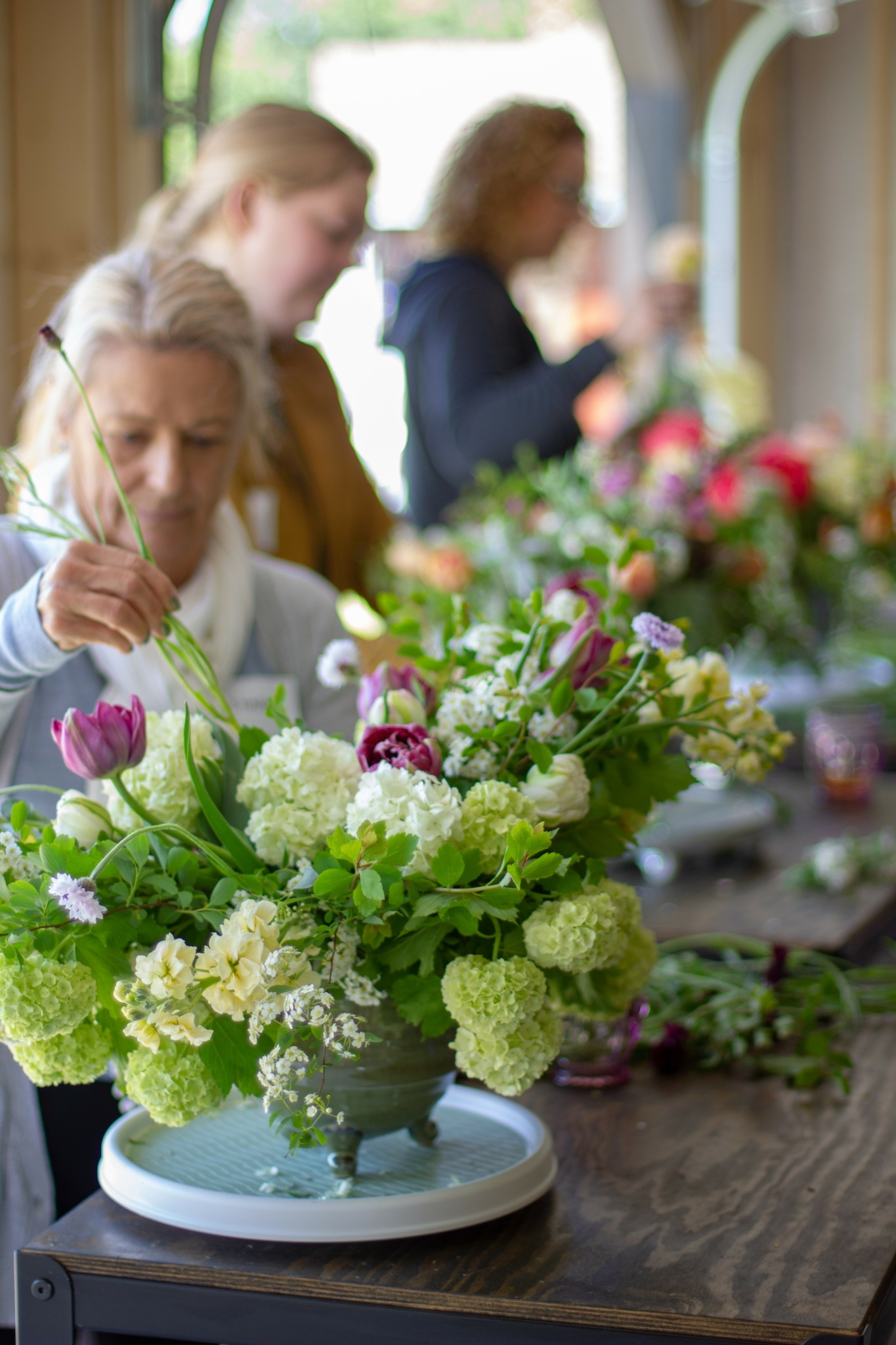
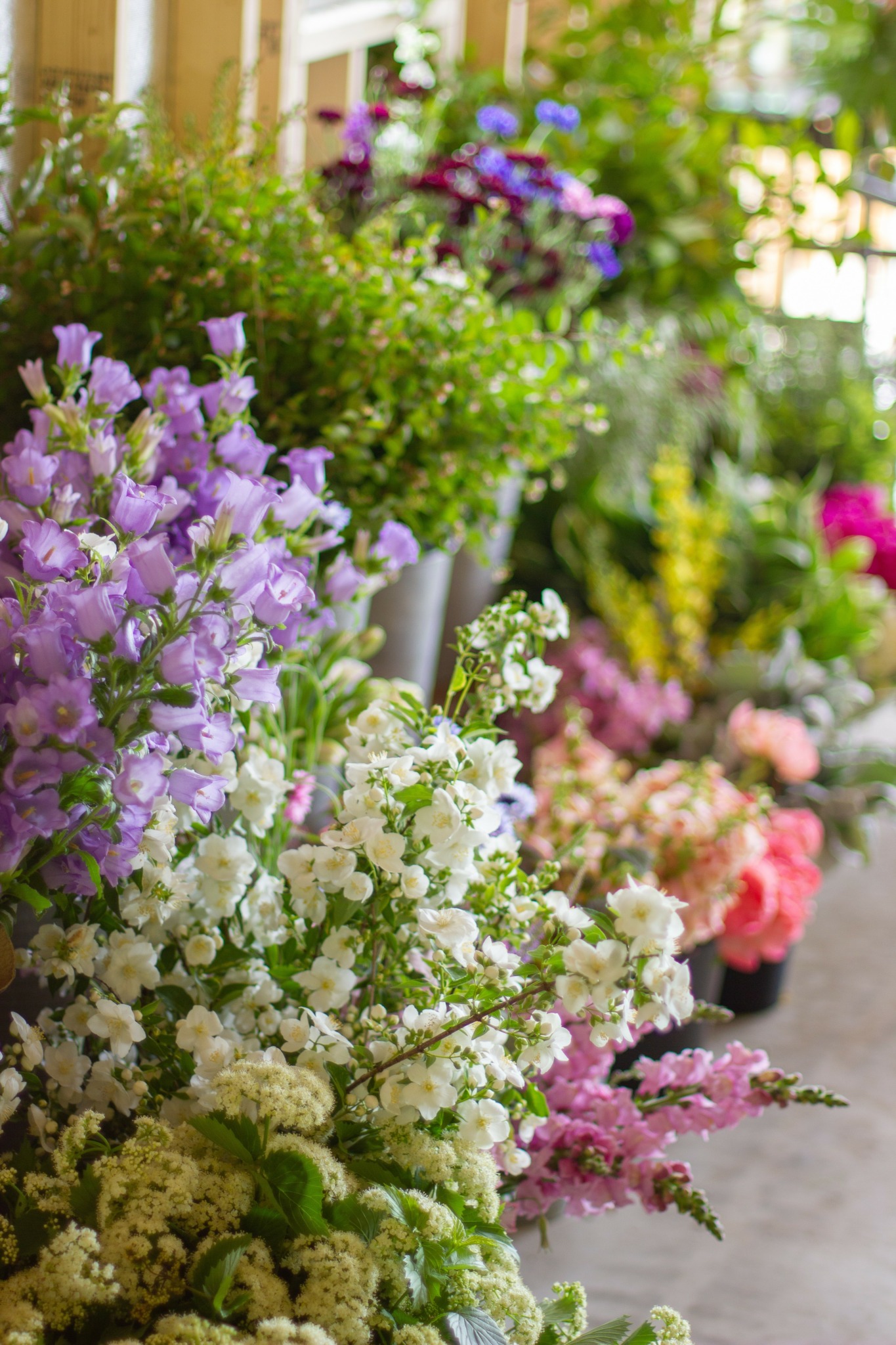
Great, appreciate you sharing that with us. Before we ask you to share more of your insights, can you take a moment to introduce yourself and how you got to where you are today to our readers.
I’m Jennie Love, owner of Love ‘n Fresh Flowers, a 5 acre regenerative flower farm located in the heart of Philadelphia, PA.
I had my first flower patch at age four in my mother’s huge kitchen garden on our 5th generation family dairy farm in rural central Pennsylvania. My soul has ever since been connected to the shifting of the seasons and the nurturing of unfurling petals and leaves.
Ironically, I needed to run away to the big city to realize just how much farming meant to me. After a decade in corporate marketing roles in Philadelphia, I found myself missing the earthy scent of soil and the physicality of manual labor. But I wasn’t keen to go back to rural life. So Love ’n Fresh Flowers was born in the heart of America’s sixth largest city.
Urban flower farming has proven to be just about the best thing I could have ever dreamed up for myself. I find it immensely gratifying to be the thoughtful stewardess of five acres of dwindling urban green space. It means the world to me to be able to create and sustain a healthy ecosystem within a concrete jungle.
I’m enamored with the community that has coalesce around my farm over the years. The smiles and connections that have bloomed over the bouquets the farm produces has led me to believe that there is magic in flowers we can’t quite understand, but to which every single one of us responds.
A great many things about my career in flowers have evolved over the 17 years since I first launched Love ‘n Fresh Flowers. At the very beginning, what I grew was sold at two small farmers markets. A handful of weddings and workshops entered the mix the second year. More weddings and a popular flower CSA come to the forefront the third season. For more than a decade, Love ‘n Fresh Flowers served as a premiere wedding florist in Philadelphia, helping more than 500 couples celebrate their love at the best venues our area has to offer. In 2022, the Philadelphia Floral Guild was born. I retired from wedding and I began to direct my energy towards building this collaborative sales model and to supporting other small businesses.
Other career highlights include serving as the president of the international Association of Specialty Cut Flower Growers. I also host two popular podcasts called Floral Guild Radio and No-Till Flowers. And I have seven online courses and established the Regenerative Flower Farmers Network with over 1,000 members.
Many will say that I’ve been a pioneer and thought leader in the floral industry, which is a humbling assessment of my journey. For me, the most rewarding part of all of it is being able to use all of those experiences and connections to help build a resilient business community that supports local flower farms.
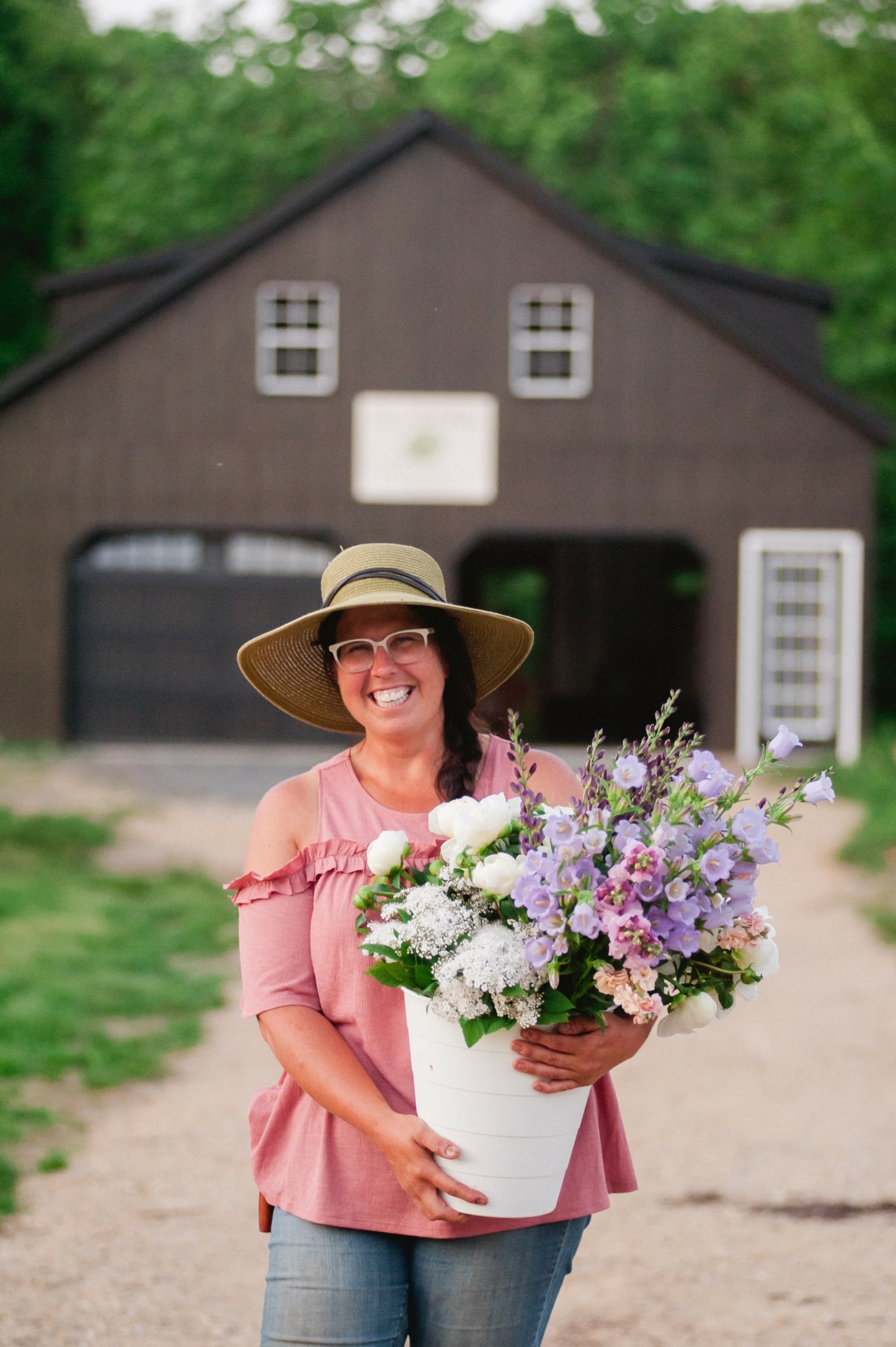
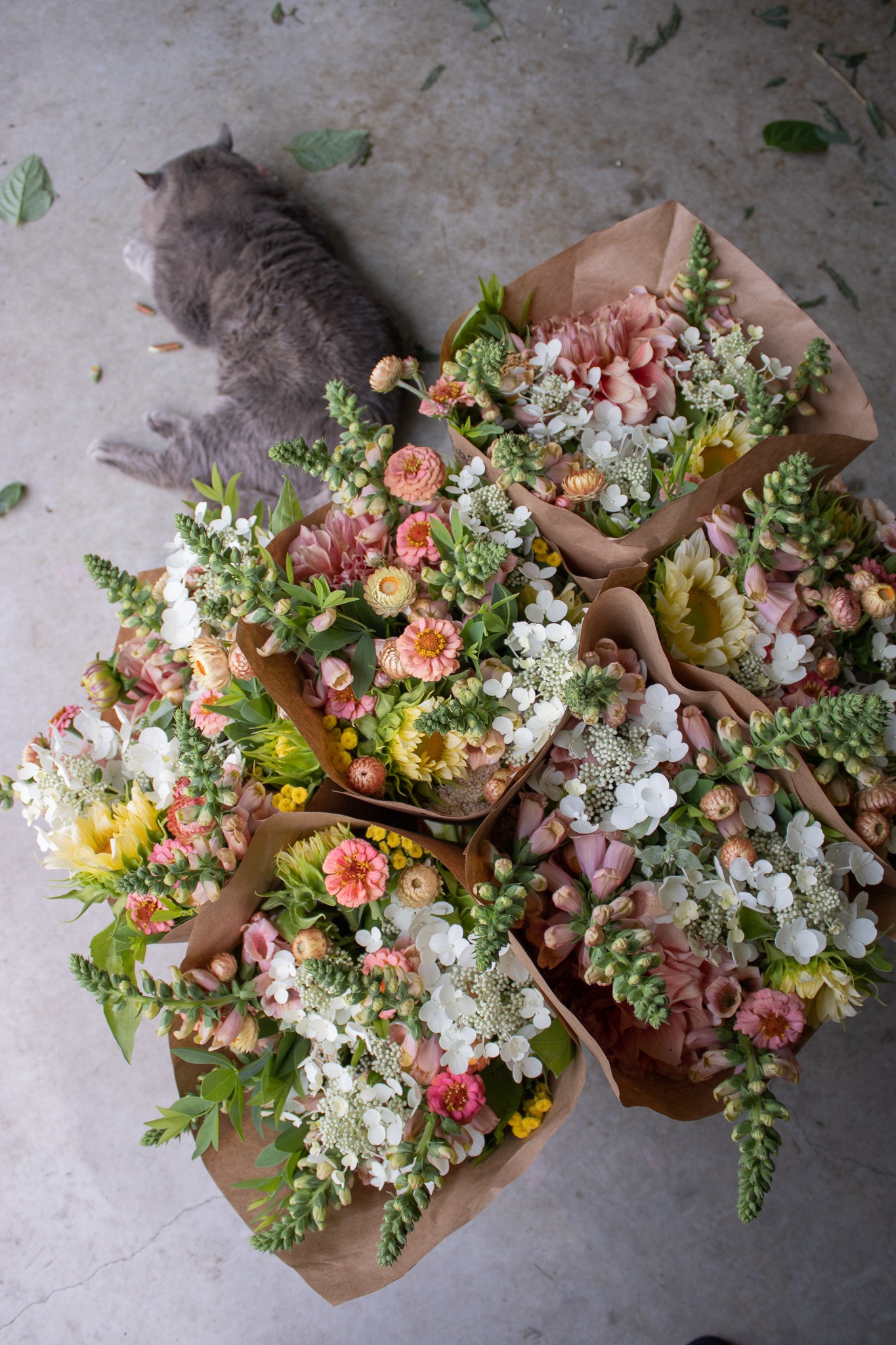
How do you keep your team’s morale high?
For years I struggled with employee management. As a new business owner, I was keenly aware of how much money employees were costing me and how much more they were getting paid than me. I also was stretched super thin and never gave employees much thought, other than what urgent fire I needed them to help put out. I’ve unfortunately made more than one employee cry.
A few epiphanies later and I can offer this advice:
1) Stop focusing on qualifications and focus instead of kindness. When I interview, I try to assess how kind and supportive the person seems to be. Of course they need to be competent and qualified for the work, but I really want to take time to look at them through the lens of kindness. Being surrounded by kindness day-to-day is the best gift you can give yourself as a small business owner. Kindness especially comes to the forefront whenever there’s a crisis.
2) Your job is to make their job easier. Show employees kindness and consideration. There’s research proving that the amount employees are getting paid has very little to do with them deciding to change jobs. Instead they want to feel valued and supported. Make sure you’re keying in on stressors for them, either at work or at home. If they seem to need a better tool to get their job done, buy them the tool. If they are struggling with a health issue, try to find a way to show them that you care and want them to feel better. A word of caution though: don’t become their best friend. Always maintain your employer boundaries, but be thoughtful in acknowledging that they’re human beings, not robots.
3) Get organized. Small business owners juggle a lot and sometimes being organized for employees slips through the cracks. If you’re not keeping the work flow organized, your team will feel frustrated and underappreciated. Having a system in place that lets them see the short term tasks alongside the long term goals is really helpful in keeping morale high. Put the work flow in writing. It shouldn’t just live in your head, forcing the team to constantly come to you and ask what’s next. If they have to ask you for each new task, it feels subservient to them and very distracting to you.
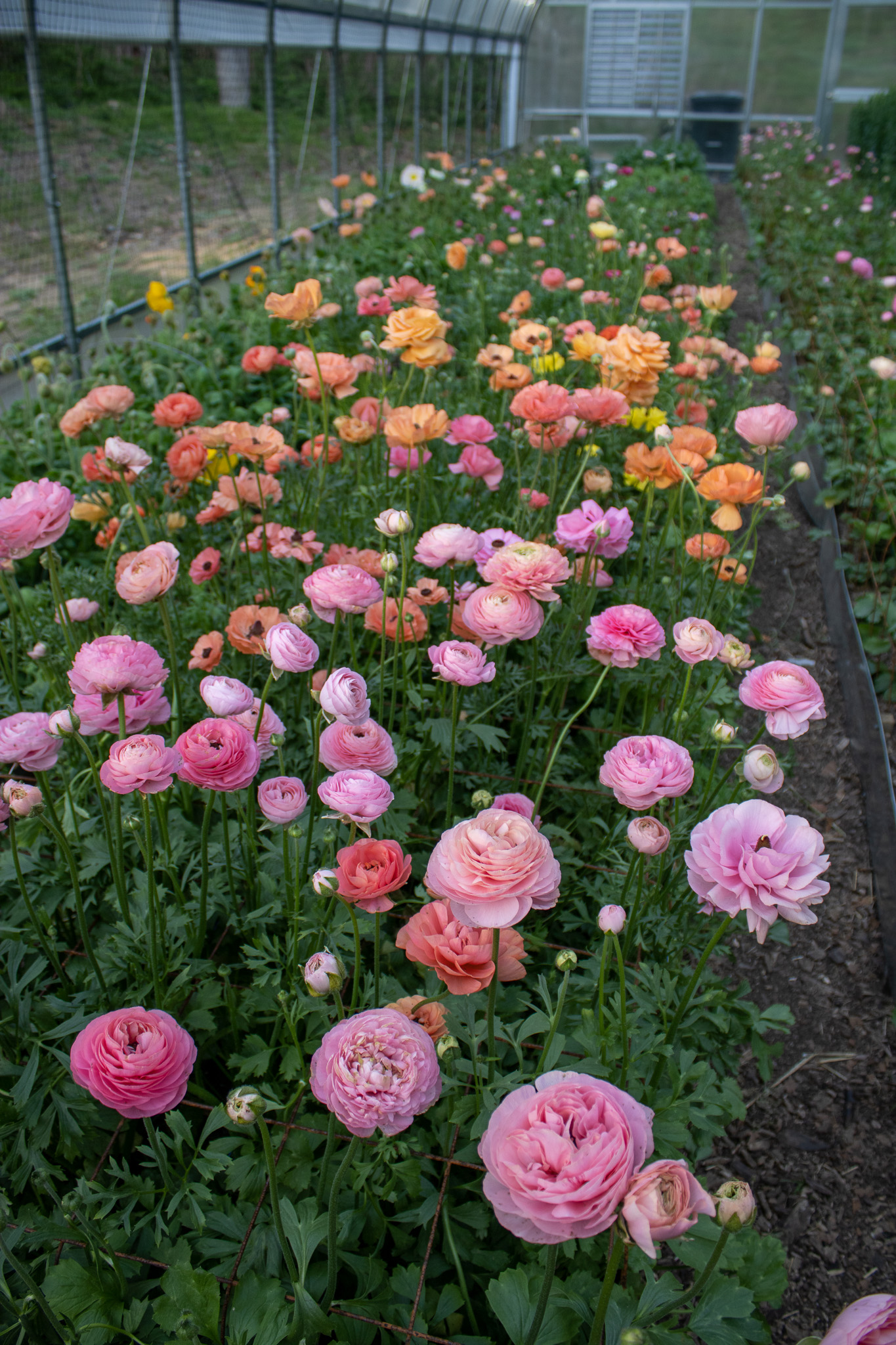
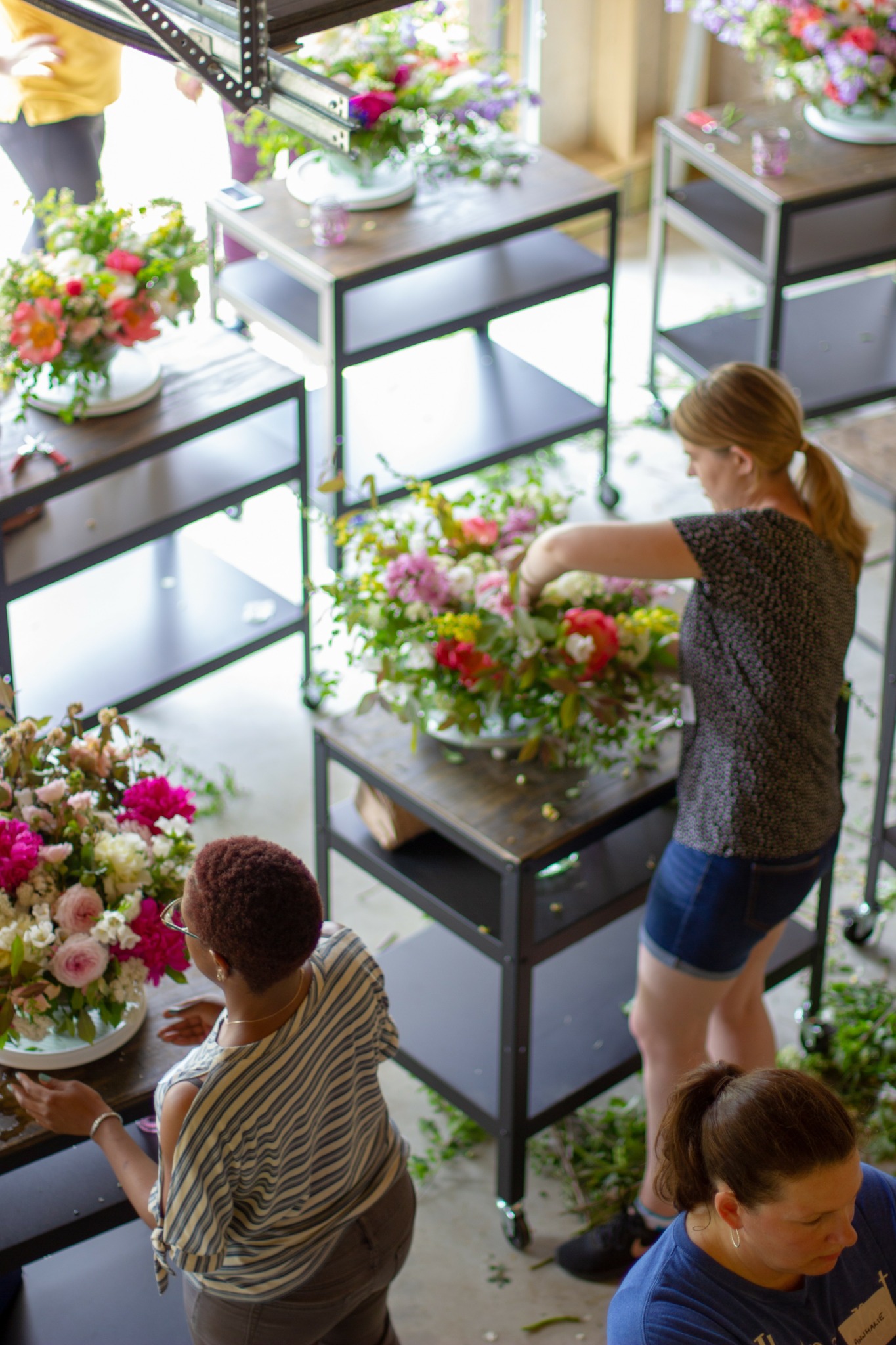
Can you open up about how you funded your business?
I had about $70,000 in savings from my corporate career that I used to launch my business. From there I found a good bookkeeper and accountant that could advise me on the best ways to build equity and relieve my tax burden as a business. I started as a sole proprietor, then moved the business to an LLC and then an S-Corp as it grew. I never took out a loan, but rather invested profits back into the business to sustain steady growth. Building tangible equity in terms of purchasing property and building structures is one of the best ways I’ve been able to maintain financial health for my business. While initial capital is important, how you handle money as you makes sales is far more crucial in the long-term.
Contact Info:
- Website: https://philadelphiafloralguild.com and https://www.lovenfreshflowers.com/
- Instagram: @phillyfloralguild and @lovenfreshflowers
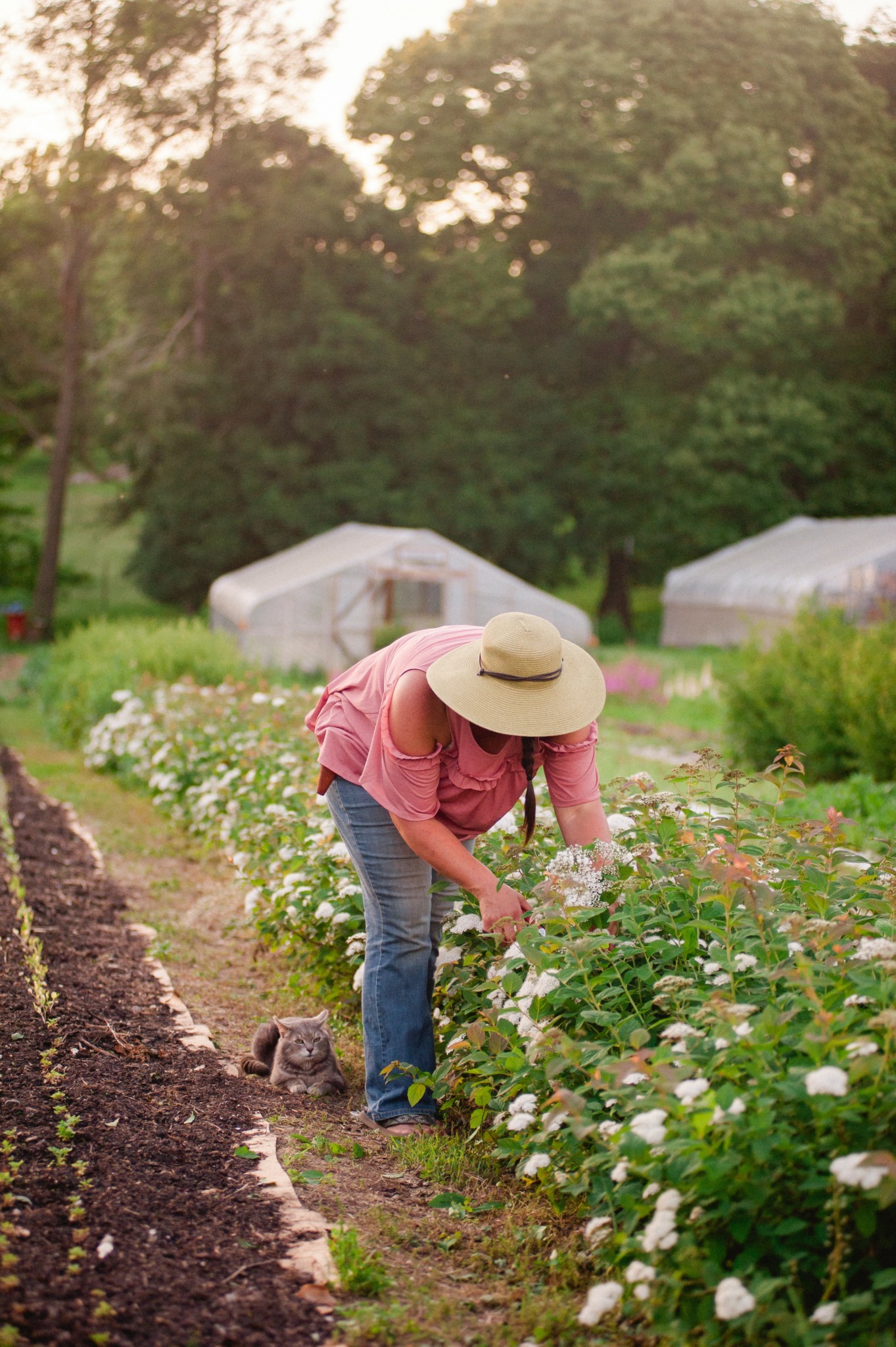
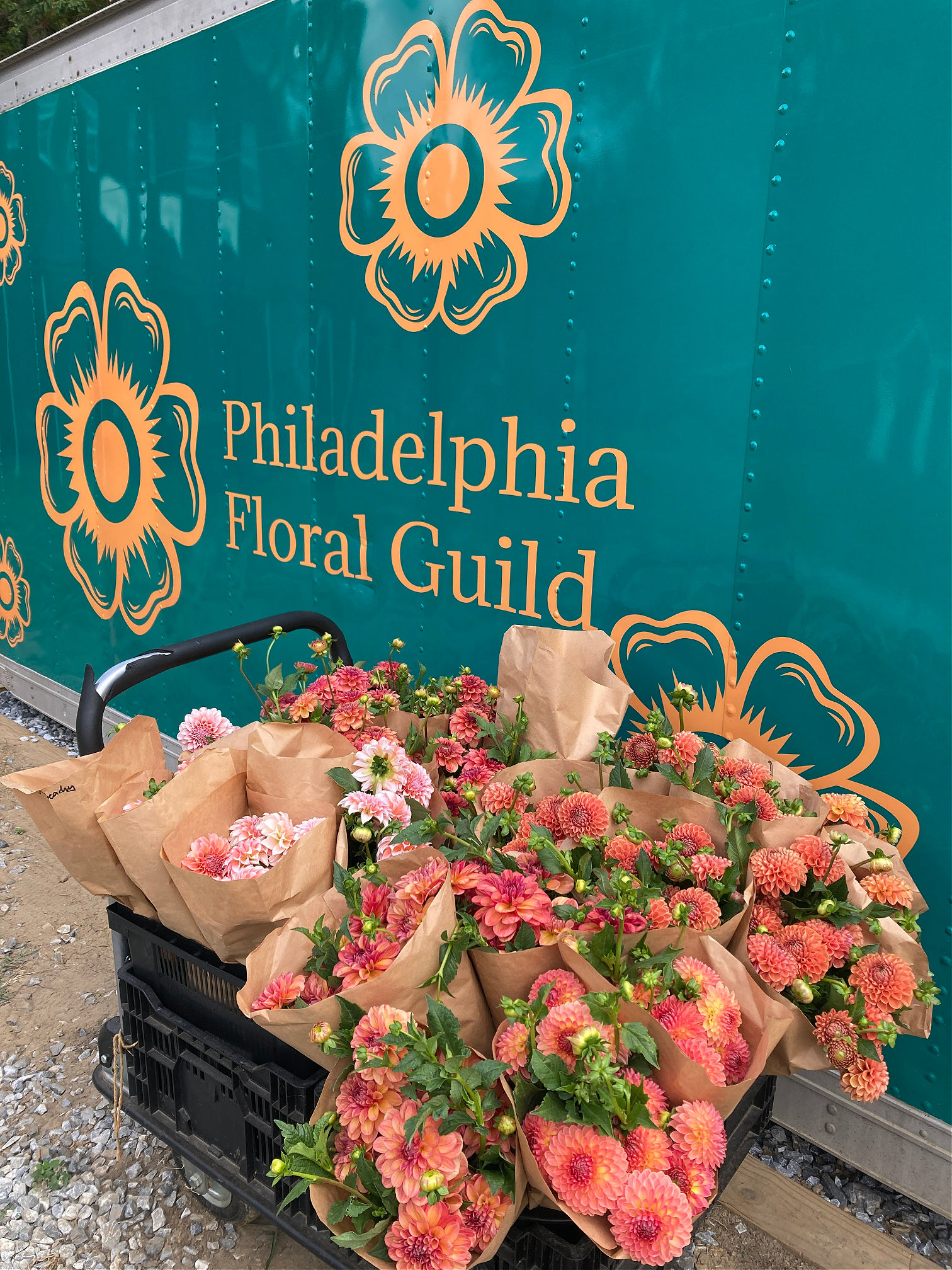
Image Credits
Jennie Love


